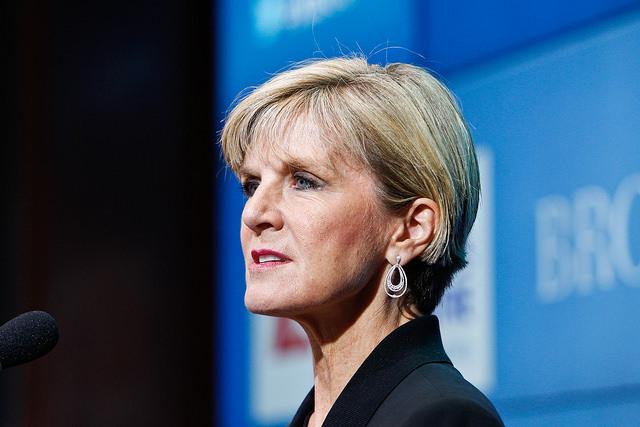Boots on the ground: The role of Iranian militia in Iraq
Posted By Anthony Ricketts on June 3, 2015 @ 14:00
When ISIS fighters recently took back the town of Ramadi, in Anbar Province, Iraq it was a serious blow to the Iraqi government and their international allies. Until now, Iraq and the US have relied on the official Iraqi army, and curtailed the role of the Iranian-backed Shia militia. But the loss of Ramadi has forced the US and its partners to rethink the role of Iran in the fight against ISIS.
The US has pushed back against the use of the Iranian-backed Shia militia (al-Hashd al-Shaabi) on domestic and geopolitical grounds. The domestic consideration relates to sectarianism and the consequence of Shia influence in the Sunni heartland of Anbar province. From this perspective, the Sunnis are threatened by the prospect of the Shias gaining too much control, bringing a return to the anti-Sunni policies experienced under former Prime Minster Nouri al-Maliki. The risk here is that the Sunni tribes of Anbar province will consider ISIS the lesser of two evils and will turn their loyalties to them—and against the Shia militia.
From a geopolitical perspective, the US is concerned that the power vacuum left by the 2003 invasion of Iraq, in addition to the Arab Spring, has unleashed Iran’s geostrategic ambitions, and opened up a space for Iran to deepen their ties to Hezbollah, Hamas, Syria [2], and more recently, the Houthis in Yemen. This growing regional influence will increase the demands of the US, particularly by their Sunni Persian Gulf partners, on the need to provide a security umbrella against Iran’s growing influence. Indeed, Saudi Arabia’s oil fields, which are situated close to Shia strongholds in their eastern lands, have been protected (symbolically at least) through the 1979 Carter Doctrine. The Doctrine was successful in withstanding Soviet influence in the oil rich region throughout the Cold War; it’s now needed to curb Iran’s growing influence.
But those domestic and geopolitical considerations are being challenged by the inability of the Iraqi military to withstand ISIS forces. The loss of Ramadi saw Iraqi Prime Minister Haider al-Abadi usher in 3,000 Shia militia to the eastern part of Ramadi to prepare for a counter-attack against ISIS.
The use of Iranian-backed Shia militias has been effective in the war against ISIS in the past. In March this year, the militias played a key role in liberating another mainly Sunni provincial capital, Tikrit. That was achieved without US air support. But it came with consequences: over 100 Sunni homes were burned by the Shia militia, and many Sunnis haven’t returned.
That provides a strategic dilemma for the US and its partners, including Australia. On the one hand, their instinct is to marginalize the Shia militia, and maintain their policy of relying purely on the Iraqi military to win the war against ISIS. The US and Australia are providing both air support and military training to the Iraqi army, and until now, [3] have believed that to be an effective strategy. On the other hand, they’re aware that ISIS is getting stronger, and the Iraqi military have demonstrated an inability to withstand the advance of ISIS without assistance from al-Hashd al-Shaabi.
The answer to this dilemma is becoming clearer. After the fall of Ramadi, US Defense Secretary Ash Carter questioned the morale of the Iraqi forces, and their strategy against ISIS more broadly. These comments run contrary to the positive interpretation of events that had been coming from the White House. For instance, following the fall of Ramadi, the Pentagon stated [4], ‘we will just have to help the Iraqi forces get it back later’. But given that most of Anbar province is now in ISIS’ hands and the air field at Al Assad—the base for many of the Iraqi Army’s (and US) operations—is now inaccessible, the Iraqi military’s need to rely on the Iranian Shia militia is now clear.
Perhaps aware of this necessity, both the US and Australia have recently shown a willingness to negotiate with Iran. The nuclear accord involving the US and Iran is due by the end of June. Such a deal is undoubtedly a win for the Iranian leadership, and suggests America’s willingness to engage in a more productive relationship with the Iranians.
Australia’s foreign minister, Julie Bishop—who took a high profile visit to Iran in April to sign an intelligence sharing agreement—has also indicated Australia’s willingness to side with Iran. In a recent interview with The Australian [5], Bishop argued that Iran should have a place at the table to keep military commanders and political leaders informed about their presence in Iraq. As Iran’s a major provider of ‘boots on the ground’ in the fight against ISIS, Bishop stated that ‘dialogue’ with the country was what was missing from discussions on the conduct of the war.
Perhaps the timing is just a coincidence, but recent developments might demonstrate renewed American and Australian understanding of the role Iran plays in the fight against ISIS. Either way, the US and Australian governments can no longer continue to walk such an ambiguous line.
Article printed from The Strategist: https://aspistrategist.ru
URL to article: /boots-on-the-ground-the-role-of-iranian-militia-in-iraq/
URLs in this post:
[1] Image: https://aspistrategist.ru/wp-content/uploads/2015/06/16401377851_f8c8a810d6_z.jpg
[2] Syria: http://www.washingtonpost.com/world/middle_east/state-dept-official-iranian-soldiers-are-fighting-for-assad-in-syria/2013/05/21/a7c3f4ce-c23e-11e2-914f-a7aba60512a7_story.html
[3] until now,: https://www.youtube.com/watch?v=IYrGzFbUFOI
[4] Pentagon stated: http://mobile.reuters.com/article/topNews/idUSKBN0O20Y520150517?irpc=932
[5] recent interview with The Australian: http://www.theaustralian.com.au/in-depth/terror/julie-bishop-wants-iran-invited-to-talks-on-islamic-state/story-fnpdbcmu-1227378652612
Click here to print.
